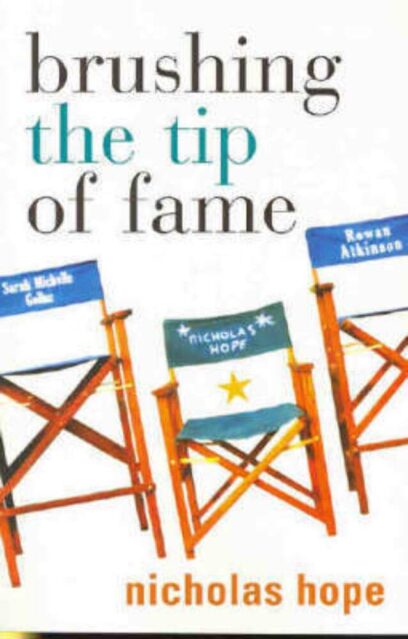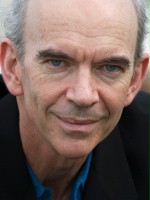 By NICHOLAS HOPE (Bantam; 2004)
By NICHOLAS HOPE (Bantam; 2004)
This rollicking showbiz memoir is valuable for two reasons. First, it illuminates, quite engagingly, the hardscrabble existence of a working film actor, as opposed to movie star (the story we usually get), and second, it provides an excellent accounting of the promotional rollercoaster that informs the releases of most non-Hollywood films.
Nicholas Hope is a British born, Australian bred actor who despite a prolific career (his imdb page lists a whopping 107 acting credits) remains best known for one film: the 1993 Australian production BAD BOY BUBBY, in which Hope essayed the title role of a mentally deficient man raised in a tiny room by his psychotic mother. Appropriately, it’s BUBBY that dominates this book, which covers a highly eventful ten year period in its author’s life.
The book begins in 1992, when the thirtyish Hope, following a string of odd jobs, auditioned for BAD BOY BUBBY, a recollection dominated by a question from the film’s writer-director Rolf De Heer: “Have you been circumcised?” Hope’s memories of the BUBBY shoot are likewise quite pointed, centering on the treatment of a cat that left De Heer saying “I feel like an SS man.” Unsurprisingly, the cat scene was the most controversial portion of an extremely controversial film.
The majority of BRUSHING THE TIP OF FAME is focused on Hope’s promotion of BUBBY. Lacking the resources of Hollywood (which puts together elaborate junkets to pimp its product), Hope and De Heer were obliged to spend several years touring the world, appearing at various film festivals and commercial screenings. The process, which Hope likens to a “traveling freak show,” was a grueling one, involving travel in third world countries on planes that were barely flight-worthy, getting lost on a car ride to a French screening of BUBBY (in which a pre-film introduction became a post-film Q&A), being stiffed by greedy film distributors in Oslo, and chatting with a depressed Ang Lee at the Seattle Film Festival.
Things didn’t go much better outside the BUBBY-verse. A part in the James Caan vehicle NORTH STAR saw Hope faced with a chaotic production and a divided crew (and a finished film that was mediocre at best), while a small role in Hal Hartley’s HENRY FOOL was only slightly more positive, with Hope fumbling the few lines he had. He also recalls auditioning for David Fincher’s SEVEN, only to be edged out by Kevin Spacey.
At least there was some romance, with Hope finding love with Bianca, a young woman he met at a 1994 Norwegian film festival who accompanied him through many of his subsequent misadventures (although the two have since broken up). And the book concludes on a high note, with Hope booking an appearance in SCOOBY DOO that, despite “playing not acting,” netted a princely (for him) $5000-a-day salary.
All this is related in an unaffected, pleasantly self-deprecating manner—if anything the book may lean a bit too heavily on the latter attribute. As Hope himself writes at one point, “Self-deprecation is all very well, but there’s a time and a place.” There’s also an acceptable quantity, which Hope arguably exceeds. Still, this book is ideal for anyone interested in how to stay sane (or not) in the world of off-Hollywood moviemaking.

